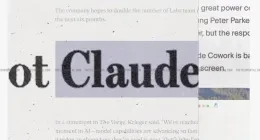Spain’s Telefonica and U.S tycoon John Malone’s cable group Liberty Global are merging their U.K operations in the form of a 50-50% join venture, to create the country’s largest integrated internet and phone operator. The deal gives rise to a nationwide integrated communications provider valued at 31 billion pounds ($38 billion) threatening multiple rivals including the country’s top operator BT Group.
The joint venture values Telephonica’s O2 at 12.7 billion pounds and Liberty’s Virgin Media at 18.7 billion pounds and is expected to deliver synergies worth 6.2 billion pounds, the companies said in a statement. Both parties expect to receive net cash proceeds at closing following a series of recapitalizations that will generate £5.7 billion in proceeds for Telefonica and £1.4 billion for Liberty Global (after an equalization payment to Telefonica of £2.5 billion.
The companies will have equal stakes as well as equal membership of the 8-member board while the chairman will rotate every couple of years.
All cash flow and financing needs will be divided between the two entities. Furthermore, both companies will have the right to kick off an IPO after three years once the deal reaches an end. The pair also aims to make 110 million pounds of additional sale by cross selling services to each other’s customers.
While neither of the companies mentioned job cuts, integration costs are anticipated to be around 700 million dollars.
Negotiations for this mega-merger began in December last year. The transaction is expected to close in the middle of 2021, subject to regulatory approvals, consummation of recapitalisations, and other customary closing conditions.
A variety of reasons label the deal as a significant one. First off, the deal is one of the largest ones to be signed since coronavirus was declared a pandemic in early March. That will give some confidence to an otherwise battered global economy. Secondly, the endeavour marks a juncture for chairmen of both companies for a separate list of reasons. The deal is the latest one for Malone in his list of consolidations since selling Tele-communications to AT&T for $48 billion back in 1999.
His consolidation spree however recorded a major glitch last year when the deal to sell UPC Switzerland for $6.9 billion dollars fell apart.
In the case of Telephonica, since Palette began to head the company, investors have pulled back on stock as the company failed to deliver clear prospects for progress or clearing its dues. The deal acts as a signal of Palette’s commitment to the company’s restructuring and a demonstration of his efforts to pull Telephonica out of debt.
Furthermore, the deal comes at a crucial time for UK Telecoms as companies attempt to figure out how to fund the tens of billions of pounds needed to roll out high speed fibre and pay for the 5G spectrum that the government is soon expected to auction. This deal however will not close before the auctions.
The Tech Portal is published by Blue Box Media Private Limited. Our investors have no influence over our reporting. Read our full Ownership and Funding Disclosure →





